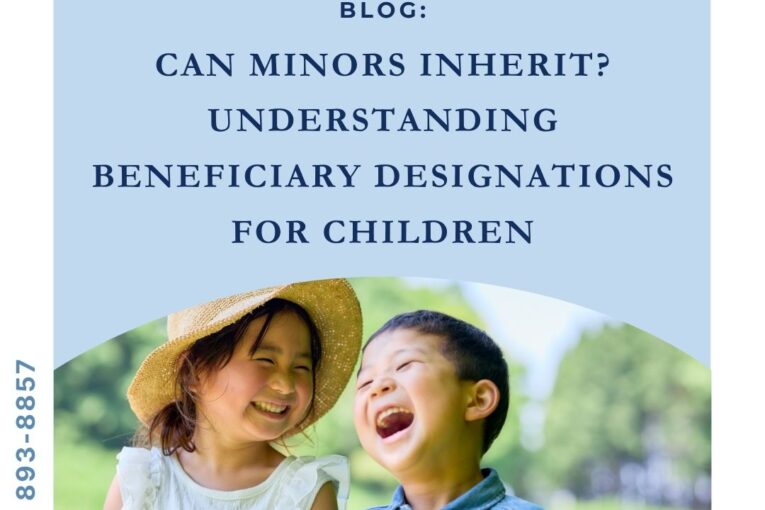When marriages or relationships fall apart and lead to separation or divorce, child custody determinations must be made. This can be an incredibly emotional and challenging time, especially when grandparents are involved and want to maintain relationships with their grandchildren. As painful as these situations can be, it’s vital that all parties keep the best interests of the child as the highest priority when making legal decisions about custody arrangements.
The Benefits Grandparents Provide
Research clearly shows that supportive, loving relationships between grandparents and grandchildren are tremendously beneficial.
- Grandparents give children a sense of family history, cultural heritage, and continuity. They share wisdom and life experiences that contribute to a child’s overall development.
- Having grandparents actively involved provides improved emotional well-being, self-esteem, and social skills in children of divorced parents.
- Grandparents can be a stabilizing source of unconditional love, nurturing, and guidance—something children especially need during difficult transitions.
Child custody mediation processes provide opportunities for divorced parents to thoughtfully consider whether ongoing grandparent relationships align with their child’s best interests. Allowing children to benefit from grandparent bonds should be an important factor in developing co-parenting and custody agreements.
Factors Courts Consider with Grandparents’ Rights
Laws pertaining to grandparents’ rights during custody cases vary considerably by state. That’s why it’s essential to consult family law statutes and experienced attorneys to fully understand current legal frameworks. However, some overarching factors commonly influence judges’ rulings:
Nature of Existing Relationships
- If grandparents were actively involved in their grandchildren’s lives prior to custody disputes, courts typically allow those bonds to continue. Severing close grandparent ties is often viewed as detrimental.
- If grandparents had limited previous roles, expanding access rights would become more challenging. Courts are reluctant to disrupt custody arrangements without evidence of pre-existing relationships.
Children’s Best Interests
- Demonstrating that ongoing grandparent involvement benefits the child’s well-being is pivotal. Grandparents may need to show how visits, shared activities, advice, etc. contribute to children’s growth and development over time.
- Judges determine whether accommodating grandparents’ wishes or deferring to parents’ objections seems more aligned with children’s best interests. The well-being, stability, and caregiving quality within children’s primary home environments are critically important.
Parents’ rights and concerns
- Courts balance grandparents’ desires with parents’ objections extremely carefully. Parental rights hold priority, so if competent parents strongly oppose increased grandparent access, judges usually defer to those wishes.
- However, if courts determine one or both parents to be unfit due to issues like substance abuse, domestic violence, neglect, etc., removing children to live with grandparents becomes more likely until problems are resolved.
Age, health, location, religion, safety risks, disruption levels, and many other granular factors also influence grandparents’ rights. Consulting qualified legal counsel is highly recommended when navigating these nuanced, emotion-filled proceedings.
Common Types of Grandparents’ Rights
State laws define various types of potential formalized roles and responsibilities grandparents may secure during custody cases. Understanding the range of options in your jurisdiction is important. Some typical rights include:
Visitation Rights
Grandparents may be granted court-approved structured visits with grandchildren per specific:
- Frequencies: once per week, every other weekend, monthly, holidays only, etc.
- Durations: number of hours, overnights, etc.
- Locations: grandparents or neutral locations—not necessarily parental homes.
- Supervision requirements: Mandating parents or neutral parties be present.
Courts issue detailed schedules, terms, and conditions that everyone must follow. Revisiting orders may become necessary over time as circumstances evolve.
Custody Rights
In certain situations, grandparents are deemed qualified for formal custody assignments, designating them as legal guardians and primary caregivers. Different forms may be ordered, like:
- Sole physical/legal custody: Grandparents assume all parenting duties; children reside with them full-time. Parental involvement and rights may be severed entirely if deemed necessary.
- Joint custody with parents: Various blended arrangements where children divide time between households. Grandparents share legal authority over major decisions impacting children’s welfare.
Custody grants are relatively rare compared to basic visitation rights. Clear evidence demonstrating parental failure and grandchildren’s improved well-being under grandparent care generally must be presented.
Third-party Guardianship Rights
Somewhat less restrictive than full custody, legal guardianship rights may allow grandparents to:
- Make important medical, educational, and religious decisions for your grandchildren.
- Access health insurance, school records, etc.
- Provide stable housing and everyday caregiving during difficult transitions.
- Oversee the finances and assets children inherit until adulthood.
Guardianship orders focus on ensuring children’s safety and continuity through disruptive events like parental deaths, military deployment, incarceration periods, rehabilitation programs, etc. They automatically expire once crises stabilizing children’s lives have passed.
Key Steps in the Mediation and Legal Process
Navigating tense family law proceedings can feel overwhelming for grandparents and parents alike. Being proactive and fully informed is vital. Consider critical actions like:
Seek mediation first.
Sitting down together with neutral mediators can build empathy, define common goals, and align divided parties before entering litigation. Keeping relationships intact is so important for children. Mediation should be pursued whenever feasible.
Consult family law attorneys.
Legal counsel experienced specifically with grandparents’ rights understands nuanced wins, risks, and negotiation tactics. They guide clients through documenting vital evidence weeks before court dates. Never assume judges will automatically rule favorably; comprehensive preparation is essential.
Gather evidence methodically.
Meticulously record grandchildren’s living conditions, medical and educational needs, safety threats, disruptive relocations, bonding highlights with grandparents, etc. These prove best-interest rationales much more convincingly than emotional pleas alone. Photographs, school reports, and physician affidavits carry tremendous influence too.
Seek child interviews and evaluations.
Family court judges always want to hear directly from the children involved, if possible. Speaking confidentially with professional counselors trained in these sensitive matters allows kids to share their genuine experiences and wishes without feeling pressured.
Remain Solution-Focused
Bitter arguments lobbing accusations usually worsen fractured family situations further. Grandparents should collaboratively brainstorm workable solutions, not threats. Taking high roads and compromising when reasonable generally improves outcomes.
Consider all possibilities.
Be open to creative arrangements, not just “all or nothing” stances. Blending joint custody, scheduled visitation, video calls, summer camps, Sunday dinners, and other hybrid options may emerge to meet everyone’s key needs.
The child custody process undoubtedly causes heavy emotions and stress for grandparents, who feel worlds crumbling without their beloved grandchildren close. But centering patience, compassion, and facts versus unproductive blame can help navigate turbulent times. Prioritizing little ones’ stability demonstrates true love; creating space for that should be the ultimate goal.
Conclusion
Grandparents often wonderfully nurture family bonds across generations in ways no other relatives can. Their love and wisdom surrounding children’s divorce or loss deserve special consideration, not barriers. Honoring requests to remain present while co-parenting arrangements stabilize seems reasonable, provided all safety precautions and children’s needs come first. Blending compassion for legitimate grandparents’ desires with firm priority on their grandchildren’s wellness can pave the best paths forward.





